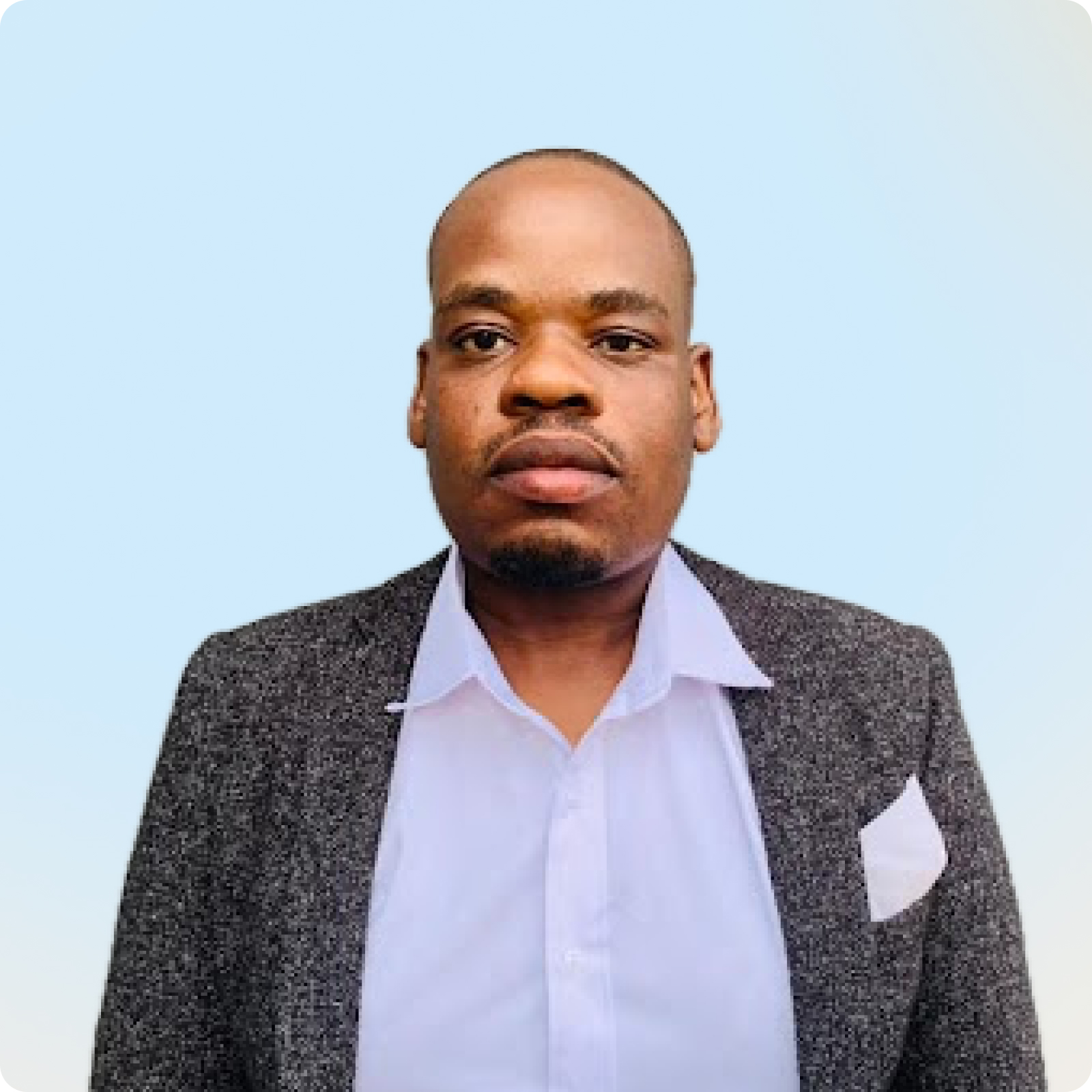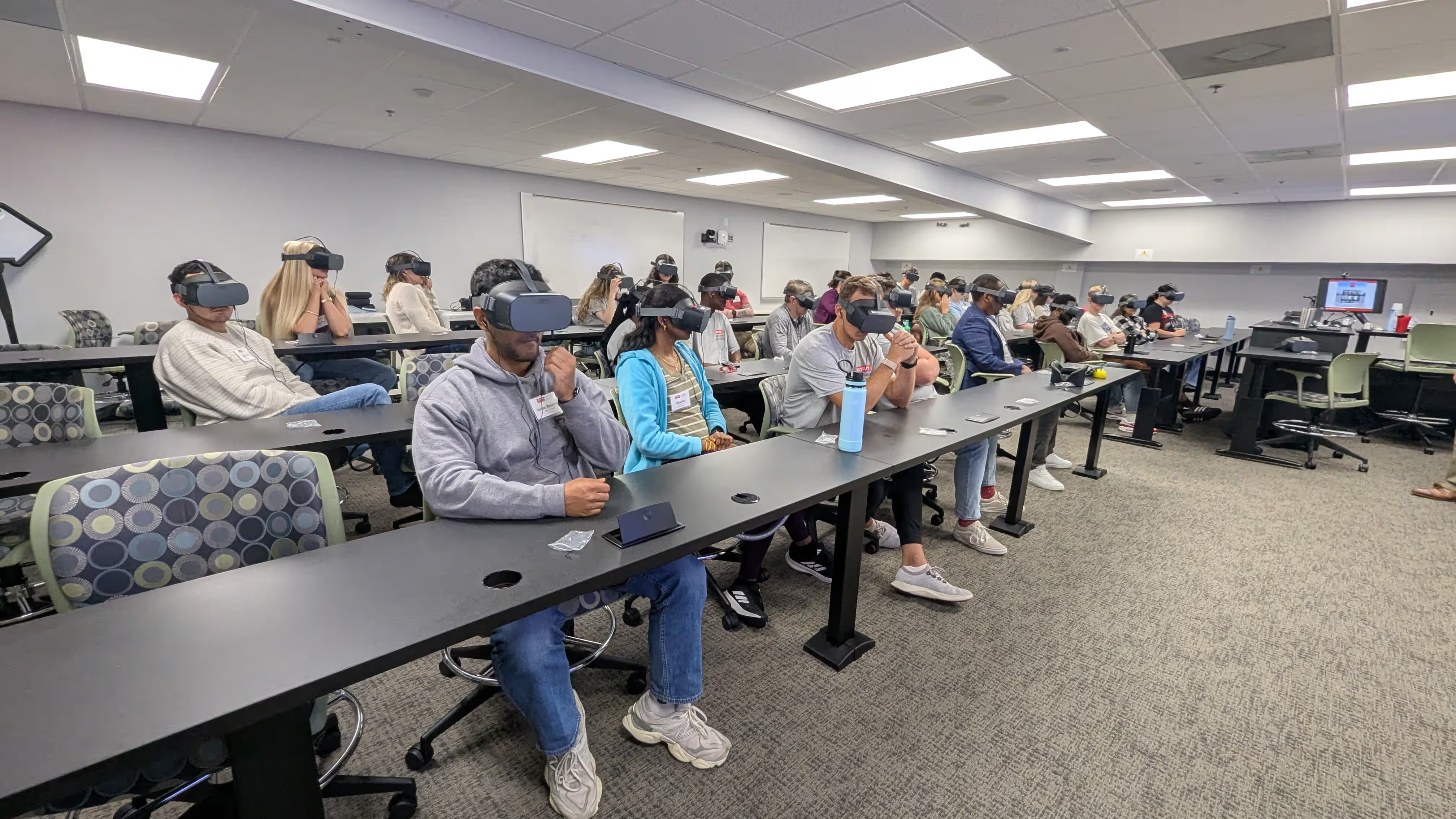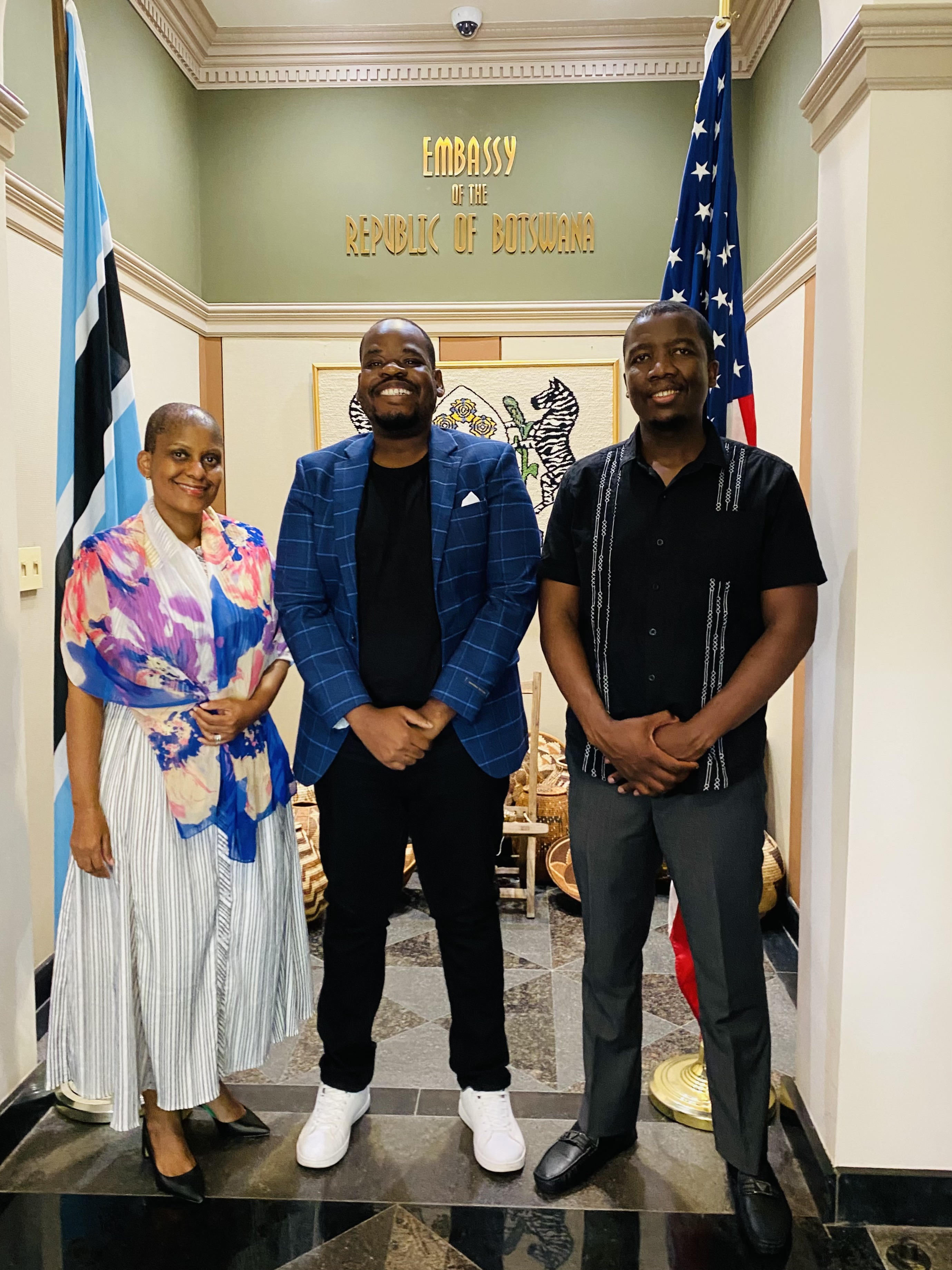45
Days
12
Hours
44
Mins
29
Secs
left to apply
In Botswana’s rural schools, many young people still face a silent divide — one not of geography, but of access. For Question Ramontsho, a digital equity advocate and the Executive Director of the Common Code Foundation, this gap between those who have access to technology and those who don’t has become the defining challenge of his generation.
From early days as a researcher on climate adaptation to founding a foundation that trains hundreds of youth in robotics and coding, Question’s journey has been guided by a simple yet radical belief: digital literacy is a human right.
Through the Global Fellows in Courage program, he is deepening his leadership practice, expanding cross-sector partnerships, and championing a future where every young African can be both creator and innovator in the digital economy.
His courage lies not in fearlessness, but in persistence — leading even with butterflies in his stomach, so others can find their wings.

Being part of GFiC has been transformative. It deepened my self-awareness and gave me practical tools to lead with clarity. The Gallup Strengths assessment helped me understand how to use my unique strengths to empower my team. Learning about AI ethics showed me how technology, when used responsibly, can be a force for good — directly relevant to my work in digital literacy.
Most of all, connecting with other Fellows reminded me that we are part of a global community of change-makers who draw courage and inspiration from one another.
Courage isn’t the absence of fear — it’s moving forward despite it. I’m a naturally shy person, but my work constantly pushes me into spaces where I have to speak, pitch, and advocate. Each time my heart races, I remind myself that the message I carry belongs to the youth who deserve equal opportunity.
To me, courage is deeply human — it’s the act of using vulnerability as a bridge to empower others.
I’m working to bridge the digital divide that limits young people’s access to education and opportunity. In rural Botswana, many youth — especially girls — lack digital tools, mentorship, and connectivity. This isn’t just a tech issue; it’s a justice issue. Without digital literacy, young people are shut out of the modern economy and civic life.
By teaching robotics, coding, and AI skills, we’re ensuring youth become creators, not just consumers, of technology.

Through the Common Code Foundation, we’ve trained over 500 young people, with more than 60% being girls. One of my proudest moments was organizing coding competitions that brought together schools from across Botswana — giving students not just technical skills, but confidence and leadership.
Watching a student present her project idea for the first time — with pride and clarity — reminded me that empowerment begins when someone believes they can.
I envision a digitally literate Africa, where access to technology is as basic as reading and writing. In the next decade, I see the Common Code Foundation expanding across the Commonwealth — becoming a regional hub for youth innovation, with thousands of young people building solutions for their own communities.
We’re building a generation that is both digitally equipped and climate-conscious, ready to design Africa’s future.

Sustainability is the hardest part — ensuring our programs outlive project funding. I’m working to embed digital literacy into school systems and partner with governments so that training becomes part of national curricula. Each small win reminds me that the future is worth fighting for.
Question’s journey captures the essence of Global Fellows in Courage — leadership rooted in empathy, perseverance, and vision. From rural classrooms in Botswana to global platforms, he’s proving that when youth are equipped with tools and trust, they can code a new story for Africa’s future.